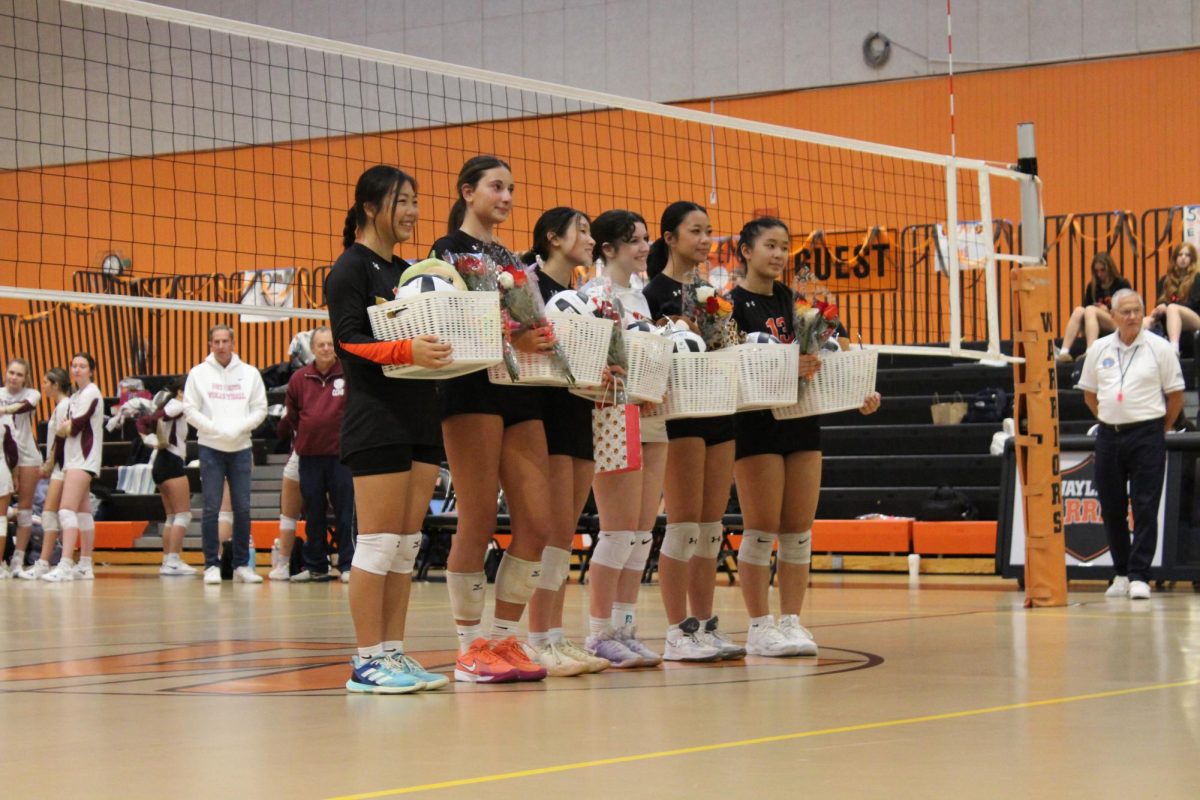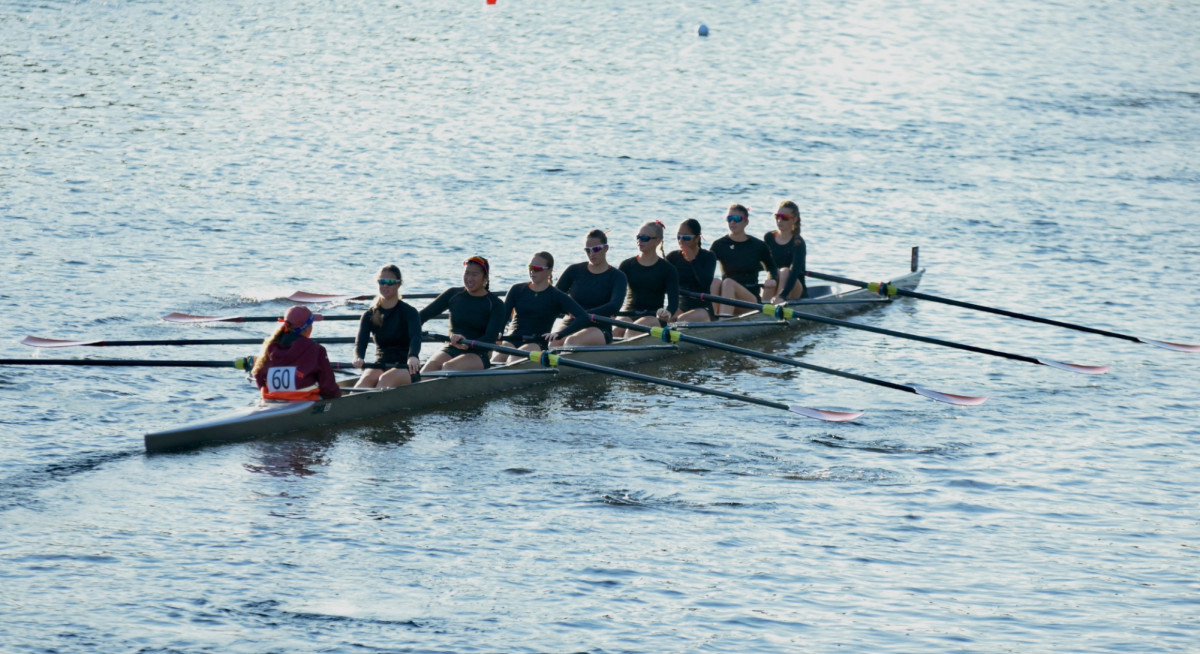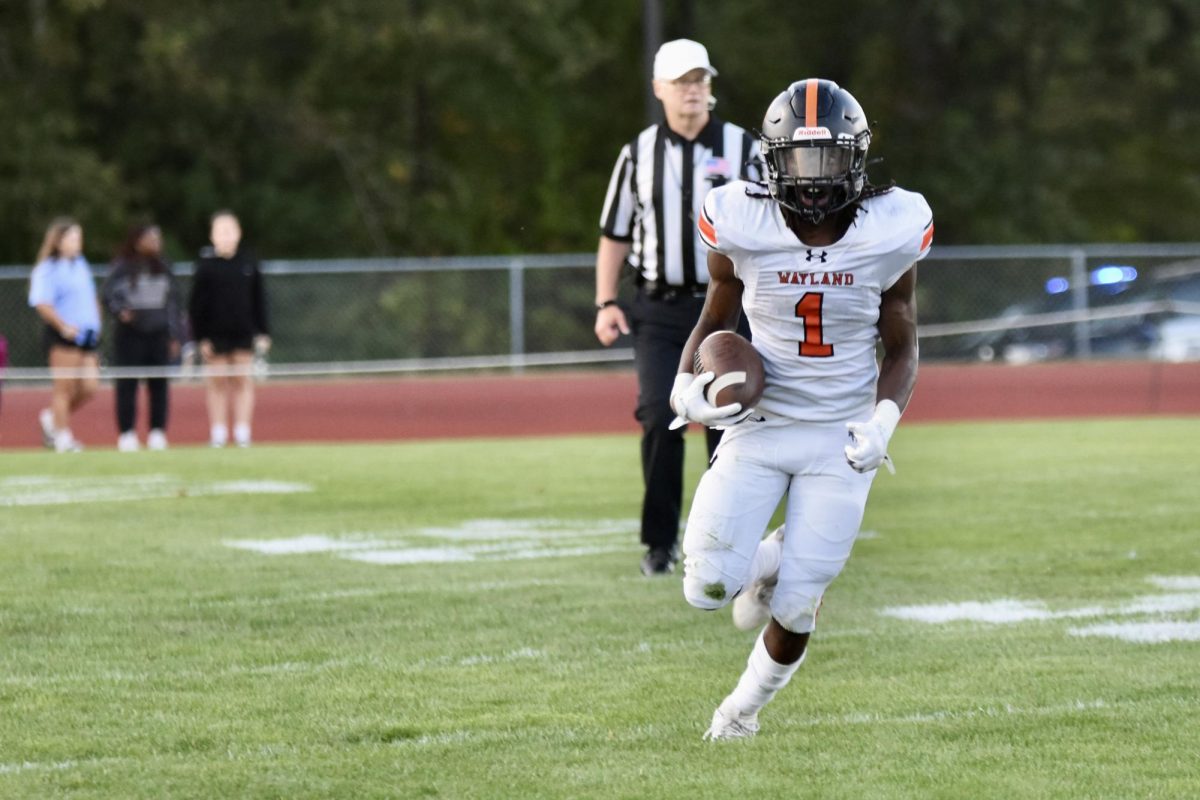Misha Arakcheev: I love it here, where you go and everybody smiles
Credit: Courtesy of Misha Arakcheev
Above is junior Misha Arakcheev (right) and his girlfriend, Pamela Weinstein-Molloy, in Russia. Arakcheev moved to Wayland from Moscow in 2011. “[In Russia] everybody is so serious, and I hate it. I love it here, where you go and everybody smiles,” Arakcheev said.
October 26, 2015
Moving is a big shift and often a difficult one, but sometimes, it can be a welcome change in the end. For junior Misha Arakcheev, who moved to Wayland from Moscow in 2011, the process has given him many new perspectives and opportunities.
After years of dissatisfaction with Russia’s political climate, Arakcheev’s family packed up and moved to the United States. Arakcheev did not realize at first that he was leaving Russia for good.
“[My parents] told me that we were going to move there for two months, and I didn’t really care that much. For me, it was just a fun trip, a holiday,” Arakcheev said.
Because Arakcheev did not know he would be living in Wayland permanently, he did not expect to start at an American school. He was surprised not only by his parents’ choice to send him to Wayland’s public schools but also by the opportunities given to Wayland students.
“It’s amazing. Everyone gets a laptop, a personal laptop, almost for free,” Arakcheev said. “We have a pool, which is very cool too. When I told my Russian classmates, they didn’t believe me.”
Arakcheev also noticed the general freedom given to students here.
“Here, everybody is relaxed. In Russian schools, you can’t even eat during class,” Arakcheev said. “Maybe you can drink water, but you can’t just take a snack and have it because it would be considered disrespectful to the teacher.”
There were differences outside of school Arakcheev observed as well, including the overall disposition of people in the United States.
“In Moscow, particularly, when you go out on the streets, nobody smiles. Everybody is so serious, and I hate it,” Arakcheev said. “I love it here, where you go and everybody smiles.”
According to Arakcheev, growing up in Moscow, he was exposed to two opposite political viewpoints. His parents strongly opposed the Russian government while his teachers constantly taught that Russia was the world’s best nation.
“In school, it was propaganda. There’s a lot of propaganda about how we’re the greatest country, the biggest country, [and how] we won World War II,” Arakcheev said. “Russians think that they won World War II, not America.”
Arakcheev’s opinion aligns more with those of his parents.
“I wasn’t a big fan of [Russian president Vladimir] Putin in the first place. I hated him and still don’t like him,” Arakcheev said.
According to Arakcheev, many Russians who live in the United States still support Putin and his government; however, he does not understand their point of view.
“Most of them are pro-Russia, and it’s very surprising to me,” Arakcheev said. “Many of them would tell you that Russia is an amazing place and you should visit it, but why do [they] live here if [they] like Russia better?”
The greatest challenge Arakcheev faced when he arrived in Wayland was that he did not speak English. He credits an English second language class and his girlfriend of one and a half years, Pamela Weinstein-Molloy, for helping him learn the language.
“I think [my] biggest progress in English [was the progress] I had after I met Pamela because we started speaking English every day, and she really helped me,” Arakcheev said.
This year, Arakcheev founded WHS’s new Startup and Entrepreneurship Club. The club will start a business and split the profit among club members.
“I started it to make an opportunity for students and to make some money in my club,” Arakcheev said, adding with a laugh, “Russian schools don’t have clubs.”















![This year, the Wayland team is made out of a JV team and a varsity team. There is a wide range of grades from eighth grade to twelfth grade that make up the teams. " [What] I will miss most [about the seniors] is their willingness to be involved," sophomore Mackenzie Grogan said. "Whether it was with school drama or referee frustration, they were really good at listening and giving good advice."](https://waylandstudentpress.com/wp-content/uploads/2025/10/8F0FD331-F005-4C3F-9F77-402D1C1953D6_1_201_a-1200x800.jpg)










![Above is junior Misha Arakcheev (right) and his girlfriend, Pamela Weinstein-Molloy, in Russia. Arakcheev moved to Wayland from Moscow in 2011. "[In Russia] everybody is so serious, and I hate it. I love it here, where you go and everybody smiles,” Arakcheev said.](https://waylandstudentpress.com/wp-content/uploads/2015/10/unnamed-1-XL-1-900x506.jpg)